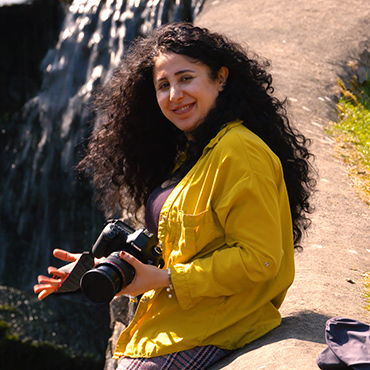Refugee Week: 17 to 23 June 2019
Did you know that every 60 seconds, 20 people leave everything behind to escape war, persecution or terror...?
Refugee Week, from 17 to 23 June 2019, is part of the UK’s largest festival celebrating the contribution of refugees to British society through a programme of arts, culture and education.
Refugee week is held annually focused around World Refugee Day, which this year takes place on 20 June 2019. The festival highlights the importance and benefits of sanctuary to those who seek it, as well as to those who provide sanctuary.
We are proud of our status as one of only nine Universities of Sanctuary in the UK and are also proud of the staff and students who support this initiative. We recognise the ways in which refugees and asylum seekers can enrich our institution and we are committed to providing support and a genuine welcome.
As a University of Sanctuary, we provide a range of opportunities, not only for those who seek refuge in Leicester, but also for staff and students across campus to contribute to the provision of a welcoming and supportive environment.
Our Sanctuary Scholarship enables those with refugee or asylum-seeking status to study with us via distance learning from anywhere in the world providing there is regular access to the internet. We recognise there may be a requirement for additional English language support for our students if they are to achieve their full potential as individuals, as shown in Parang’s testimony below.
Philip Horspool, Director of the English Language Teaching Unit (ELTU) at the University of Leicester and Chair of the University of Sanctuary Steering Group, said: “Language is one of the many challenges facing those who leave their country. Here at the ELTU we have the will and expertise to help those for whom English is not their first language. Leicester has for a long time been a city that welcomes refugees, and with conflict still present in many areas of the world, is likely to welcome increased numbers in the coming months and years. I believe that helping those in the local community who need support is something that universities ought to do, and I’m delighted that in a small way we can offer our expertise and facilities.
“From the outset, we were committed to becoming a University of Sanctuary. At the launch event, we heard poetry readings and music from those seeking sanctuary as well as from campaigners.
“Our aim throughout has been to involve colleagues from across our University to support refugees and asylum seekers as well as actively involving refugees and asylum seekers in University life.”
Colleen Molloy, National Development Officer for City of Sanctuary, said: “Being a University of Sanctuary is more than a case of being welcoming – it is about embedding, in every layer of the University, a deep understanding of the need of refugees in order to ensure that lives and talents are not wasted, and to harness the fantastic contribution that refugees and asylum seekers can make to our society.”
Aleks Palanac, ELTU Tutor, said: “I’m excited to be part of this initiative, which aims to extend our ongoing work with refugees. We hope that our work there will result not only in more refugees gaining access to good-quality language provision, but that this will, in turn, open new doors in terms of access to other training opportunities.”
Parang’s story
 Parang Khezri is a 31-year-old Iranian refugee studying at the University of Leicester. She fled Iran in 2015, leaving behind her family and making the harrowing journey to the UK alone.
Parang Khezri is a 31-year-old Iranian refugee studying at the University of Leicester. She fled Iran in 2015, leaving behind her family and making the harrowing journey to the UK alone.
Back in Iran, Parang graduated from university in Tehran with a degree in drama and film. She used her skills as a film maker to shine a light on issues in Iran. She had been filming a documentary on musicians who were secretly performing in a country where musical expression is restricted when a warrant was issued by the state police for her detention.
Upon arrival in the UK and securing refugee status, Parang realised that in order to be able to continue to work and succeed in her chosen field, she needed to have sufficiently good English language skills to communicate her goals and ambitions.
Parang has found a new home in Leicester where the University of Sanctuary project has offered her the level of support and English language tuition she needs to help her become more confident and realise her full potential in her new life in the UK: “What I have been taught at the University is just amazing. What I am learning offers me the chance to be able to work professionally again in the future and to progress my education to gain additional qualifications. I believe that the University can change the future of refugees.”
Parang continues: “Leicester University of Sanctuary deals with the refugee crisis in such a positive manner. They can see the ways in which I and my fellow refugees can benefit society as well as the ways in which the University can support us. I hope that more universities will be able to do the same for other refugees.”